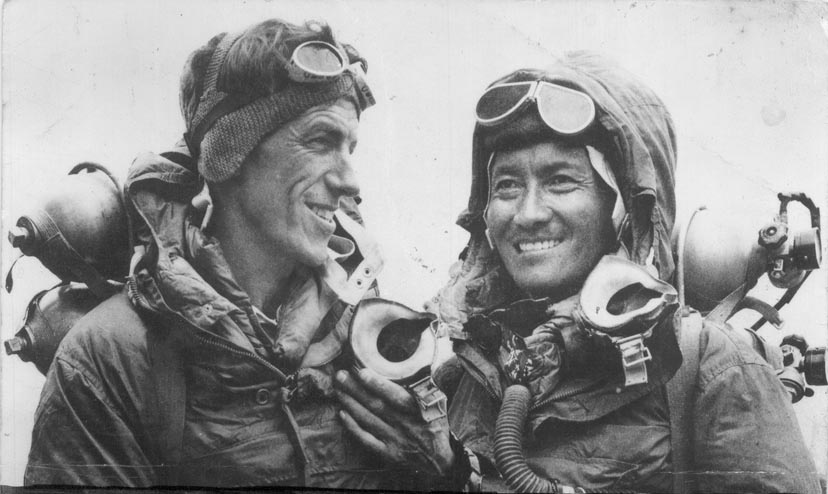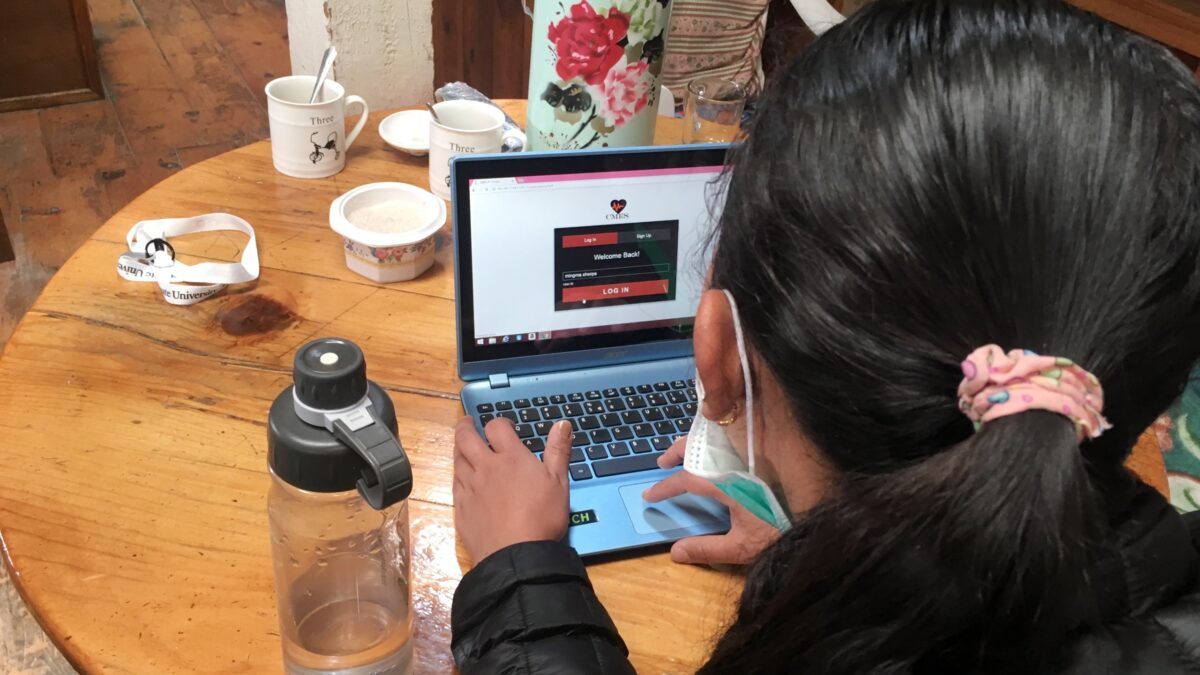
The narrow road to the deeper connection
The village of Khunde in Nepal is a five day hike (three days up and 2 days down) from Lukla, one of the most dangerous airports in the world.
Khunde hospital lies at the foot of Khumbu Yul-Lha, (5,761 metres). Sir Edmund Hillary together with the local community, helped to build the hospital in 1966. It is supported by the Himalayan Trust.

Khunde hospital has dial-up Internet, but connectivity is slow and sporadic. This makes it difficult for Dr Mingma Sherpa, the hospital’s only doctor, to stay current with advancements in the medical field and modern scientific approaches to patient care.
In 2017, along with Dr Yan Li, I embarked on a long and arduous trek along the Everest Base Camp (EBC) circuit after landing at Lukla airport on a 19 seater Dornier turbo-prop airplane. We carried with us a (thankfully) lightweight Raspberry Pi computer for Dr Mingma to use at her high-altitude clinic. The bespoke minicomputer was configured with the CMES software which would enable Dr Mingma to access the latest medical research and education.
Dr Li and I were on a mission from Techies Without Borders (TWB). Delivering the tiny Pi was just the start. At Khunde hospital, we had to ensure that CMES-Pi worked within the constraints of limited infrastructure on-site. We also trained Dr Mingma to use the CMES app on her phone and laptop.
CMES (Continuing Medical Education on Stick) is a novel technological platform that enables access to up-to-date medical information not locally available, but vital to advance the knowledge and skills of medical practitioners. The project is an initiative by Techies Without Borders (TWB), a non-profit organisation that aims to bring together like-minded researchers, experts, and IT professionals to harness the power of technologies for social development.

The power of the Pi
The Raspberry Pi is a pocket size computer developed in the United Kingdom to promote basic computing skills in schools and developing countries. Since its release in 2012, Pi computers have been hugely popular among those seeking to re-define innovation and creativity through the use of low-cost computers.
At TWB, volunteers load the Pis with the CMES software and latest medical information in PDF and MP3 formats. CMES-Pis are then installed at hospitals and clinics located in resource constrained areas around the world. In most cases, two TWB volunteers visit the clinics to install the Pi device and to train the medical practitioners. In areas where the Pi is not a viable option, CMES software is made available via thumb drives or “sticks”. Thus far, TWB has customised and delivered Continuing Medical Education (CME) content to hospitals and clinics in 16 countries across four continents.
Health professionals can connect their mobile phones to the Pi and access medical information most relevant to their practice. They can also plug-in the USB drive to access information on a desktop computer or a laptop. The key advantage of CMES is that health practitioners can use the Pi or the USB to search and find relevant information without the need for Internet or expensive mobile data plans. As information can be downloaded to their personal phone or computing device, vital information is accessible at the patient bedside, while traveling to work and remote locations, even when there are power disruptions.
A deeper connection
The importance of CME in resource constrained areas manifests itself in feedback from health practitioners. Such as the 2 AM call Dr Vera Sistenich, an Emergency Medicine Physician at the St. George Hospital, Kogarah, NSW, Australia, took from a paediatrician in the Democratic Republic of Congo (DRC). Dr Sistenich is also the Oceania region co-ordinator for TWB. Her colleague in the DRC was gratefully informing Dr Sistenich about a complex medical procedure she conducted on a two year old patient that she learned at a CME session.
Or when doctors in Fiji say that they gain confidence to try new procedures because of the knowledge gained from CME. It is in these moments that the “Techies” feel jubilant; we know hearts have been touched and lives changed for the better, regardless of not personally knowing the patients saved with the help we deliver around the world.
What makes the CMES platform unique is that it is designed to function in areas where Internet and power is likely to be disruptive. CMES-Pi performs many incognito tasks. It is constantly on the lookout for an Internet connection. When it finds a connection, the Pi springs into action to download as much new content as possible and stores it locally on the device. Over the course of time, the Pi thus keeps itself updated, regardless of the speed and reliability of the Internet connection.
Medicine is a fast-moving field of knowledge. With advancements in science, standard procedures can become outdated within a few years, or even months (the swift changes to COVID-19 treatments and protocols is just one example). Incremental additions to practical knowledge can be lifesaving and help attain better outcomes for patients.
Health professionals rely on a constant flow of information (or, CME) to stay abreast of best practices. However, for many professionals in remote and rural clinics in developing countries, getting their hands on the latest medical journals, let alone attending international conferences, is beyond their budget and possibly beyond the ability of their clinic to spare them.
TWB aims to make a deeper connection between health practitioners in resource challenged areas and their counterparts from other parts of the world, so that mutual sharing of knowledge may translate into better future of the populations they serve.
Manoj is an Associate Professor in the Discipline of Business Information Systems at the University of Sydney Business School. He is a recipient of the 2022-23 Fulbright Global Scholar Award in recognition of his work with Techies Without Borders.
Share
We believe in open and honest access to knowledge.
We use a Creative Commons Attribution NoDerivatives licence for our articles and podcasts, so you can republish them for free, online or in print.







